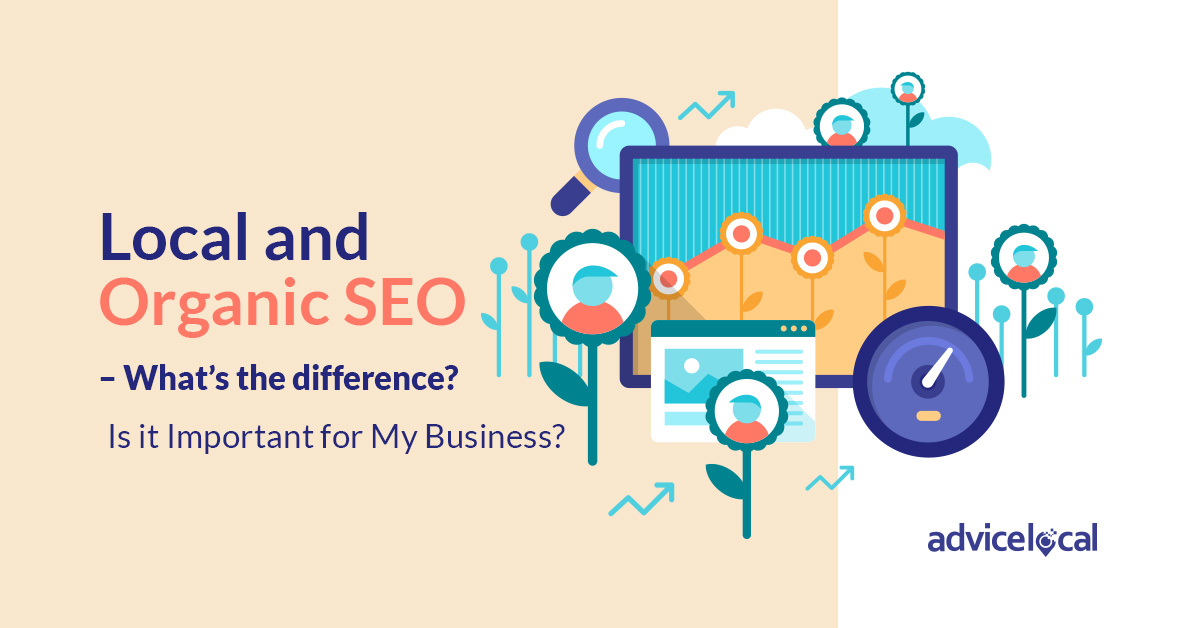Introduction to SEO
Search Engine Optimization, or SEO, is a term that often sparks curiosity and confusion. It’s the art of getting your website noticed by search engines like Google to attract more visitors. But did you know there are different types of SEO? Two major players in this arena are local SEO and organic SEO. Both strategies aim to increase visibility but serve distinct purposes depending on your business goals.what is the difference between local and organic seo
If you're a business owner looking to connect with customers in your area, understanding local SEO is crucial. On the other hand, if you’re aiming for broader reach across various regions or even globally, then organic SEO may be more up your alley. This guide will break down what exactly sets these two apart while highlighting their unique benefits and providing actionable strategies for implementation. Ready to dive into the world of search optimization? Let’s explore!
What is Local SEO?
Local SEO focuses on optimizing a business's online presence to attract more customers from relevant local searches. This strategy is vital for businesses that operate in specific geographical areas.
By targeting location-based keywords, local SEO helps connect businesses with consumers looking for products or services nearby. For instance, someone searching for “best coffee shop near me” will be served results tailored to their current area.
Key components of local SEO include Google My Business optimization, localized content creation, and citation building across various online directories. These elements help improve visibility in search results and maps.
Additionally, customer reviews play a crucial role. They not only enhance credibility but also influence potential clients’ decisions when choosing between options available in their vicinity. Local SEO ensures that your business stands out where it matters most—right in your community.
What is Organic SEO?
Organic SEO focuses on improving a website's visibility in search engine results without relying on paid advertising. It involves optimizing various elements of your site to attract natural traffic.
The process includes keyword research, high-quality content creation, and building backlinks from reputable sites. These strategies help search engines understand your site's relevance to specific queries.
On-page optimization is crucial for organic SEO. This covers aspects like meta titles, descriptions, header tags, and image alt texts. Each element plays a role in how well your pages rank.
Off-page factors also come into play. Social media engagement and online reputation contribute significantly to organic rankings.
The goal of organic SEO is sustainable growth over time. Unlike paid ads that disappear once funding stops, well-optimized content continues to draw visitors long after it's published.
Key Differences between Local and Organic SEO
Local SEO focuses on optimizing a business's online presence to attract customers from specific geographic areas. It often involves targeting local keywords and utilizing platforms like Google My Business, which help businesses appear in location-based searches.
On the other hand, Organic SEO aims at improving visibility in search engine results pages (SERPs) without geographical restrictions. This approach relies heavily on content quality, backlinks, and overall site optimization to increase rankings for broader keywords.
Another key difference lies in intent. Local SEO caters mainly to users looking for services or products nearby. Conversely, organic SEO reaches a wider audience with varied intentions that may not be tied to any particular location.
Metrics differ too; local campaigns track foot traffic and visits while organic strategies focus more on website traffic and engagement levels across diverse demographics.
Benefits of Local and Organic SEO
Local SEO helps businesses connect with customers in their area. It enhances visibility on search engines for location-based queries. This means more foot traffic and higher chances of conversion.
Organic SEO focuses on ranking high in search results through quality content and relevant keywords. It's about building authority and trust over time, leading to sustained website traffic.
Both strategies complement each other well. Local SEO can drive immediate sales while organic SEO builds a long-term online presence. Together, they create a robust digital marketing strategy that caters to both local inquiries and broader audiences.
Using both methods also improves brand awareness across different platforms. When users engage with your business locally or organically, it fosters loyalty and encourages repeat visits or purchases. The blend of these approaches can significantly enhance overall business growth.
How to Implement Local and Organic SEO Strategies
To implement local SEO strategies, start by optimizing your Google My Business listing. Ensure all information is accurate, including your address, phone number, and business hours. Use high-quality images to make your profile stand out.
Next, focus on local keywords. Research terms that potential customers in your area might use and incorporate them into your website content and meta tags.
For organic SEO, create valuable content that answers common questions in your industry. Blogging regularly can help boost visibility over time.
Link-building is crucial for both strategies. Develop relationships with local businesses or influencers who can provide backlinks to enhance authority.
Monitor analytics consistently. Tools like Google Analytics will show how well each strategy performs so you can adjust as needed based on user behavior and trends.
Conclusion
Understanding the distinction between local and organic SEO can significantly enhance your digital marketing strategy. Both approaches serve unique purposes, catering to different audiences and search intents. Local SEO focuses on reaching customers within a specific geographic area, while organic SEO aims for broader visibility across various search engines.
By leveraging both strategies effectively, you can attract more targeted traffic to your website and increase conversions. The right blend of local optimization techniques along with strong organic practices will position your business favorably in the competitive online landscape. Whether you're a small local business or a larger enterprise seeking wider reach, mastering these concepts is essential for long-lasting success in today's digital ecosystem.
